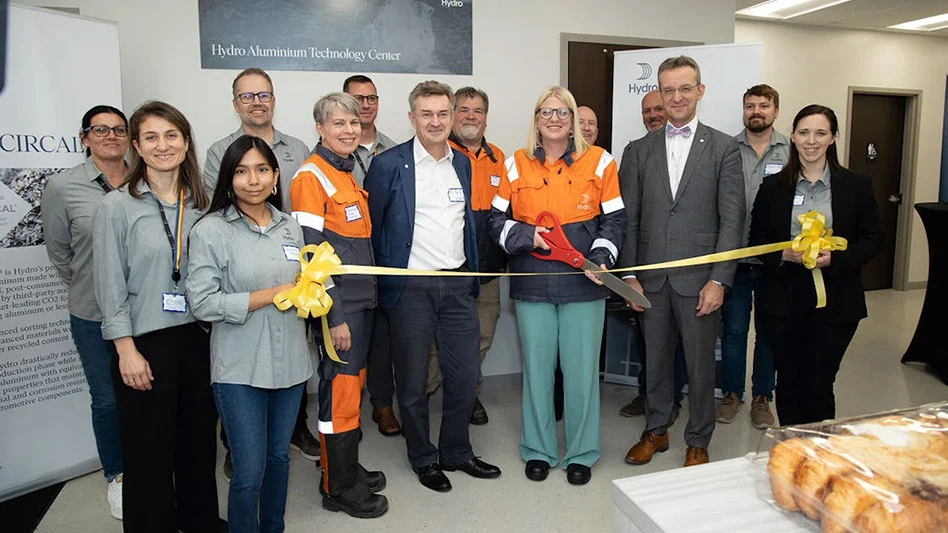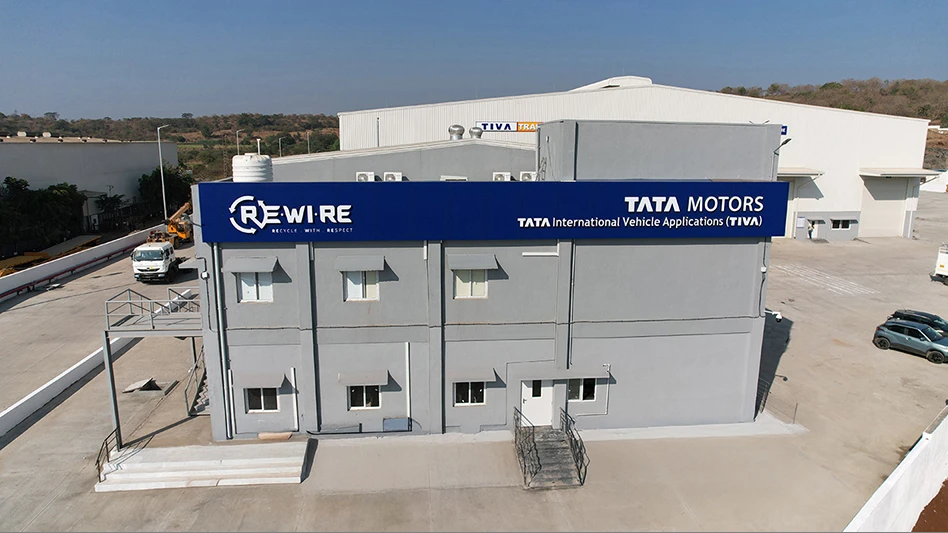
Photo courtesy of Ann Reiff/Hydro
Hydro celebrated the expansion and relocation of its technology center from Zeeland, Michigan, to Cassopolis, Michigan, next to its new aluminum recycling plant, Oct. 2.
“Our technical resources have been instrumental in our success and growth in the U.S. for many years,” says Duncan Pitchford, president of Hydro Aluminum Metals USA. “Having this best-in-class technology center next to our newest recycling plant in Cassopolis will strengthen our ability to deliver on our future growth plans at Cassopolis and throughout the U.S.”
Hydro says the new technology center allows it to continue to meet the growing demand for low-carbon aluminum products in the U.S.
The technology center features what Hydro calls a “state-of-the-art” laboratory that can perform advanced testing of mechanical properties, corrosion and metallurgical investigations. It also has an updated design to improve process flow and safety conditions for employees.
The technology center and recycling plant share the same administration building, fostering closer collaboration between operators, engineers, technical and R&D personnel, according to the company, benefitting not only Cassopolis but also Hydro’s recycling plants in Henderson, Kentucky, and Commerce, Texas.
As part of Hydro’s global network of laboratories and R&D centers, the Hydro Aluminum Technology Center (HATC) in Michigan provides critical performance testing data to support Hydro’s production facilities and customers in the U.S., Canada and Mexico in offering high-performance aluminum products into demanding end markets such as automotive.
Hydro’s global R&D and customer support network also includes in-house research scientists at Karmøy and Sunndalsøra in Norway, and university partners in the U.S. and Europe.
"Being part of Hydro's global R&D network is crucial for our work,” says Stig Tjøtta, Ph.D., head of Technology for Hydro Aluminum Metal. “We run yearlong performance testing of our aluminum products to demonstrate compliance with the standards of leading automakers. Additionally, using the knowledge we have gained over decades in serving the automotive industry, we can use models that accurately predict the performance of aluminum products in new structural or crash management applications.”
Accredited by the American Association for Laboratory Accreditation, HATC is the only testing laboratory in the Hydro system capable of providing third-party certified testing for strength, corrosion resistance and other aspects of aluminum performance. In addition to HATC, Hydro operates a technology center in Troy, Michigan, supporting its extrusion plants throughout North America.
Hydro can produce more than 2.2 billion pounds of recycling-based aluminum billets annually in the U.S.
The expanded capacity will include significant volumes of Hydro’s proprietary HyCrush and HyBeam automotive alloys, made possible by the technical expertise of the HATC team. Hydro also van produce variants of these alloys as Hydro Circal, containing at least 75 percent postconsumer scrap and the lowest carbon footprint in the aluminum industry, according to the company. Cassopolis also uses Hycast’s proprietary LPC, or low-pressure casting, technology.
Latest from Recycling Today
- Olympic Wire acquired by IEG
- Botol cites PET collection boost in Vietnam
- Motion to acquire International Conveyor and Rubber
- Weima America celebrates 25th anniversary
- University of Michigan researchers to assess Michigan’s bottle deposit law
- TOMRA's GAINnext delivers high UBC recovery
- Making recycling work: EPR laws help support a more sustainable future
- Call2Recycle strengthens partnership with Brockville, Ontario





